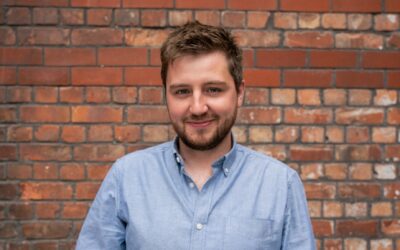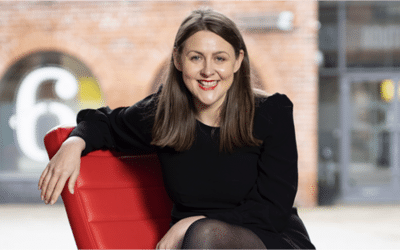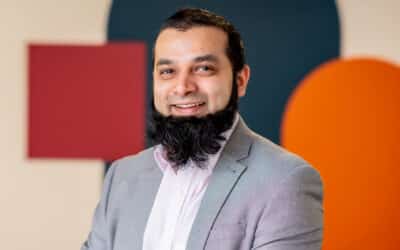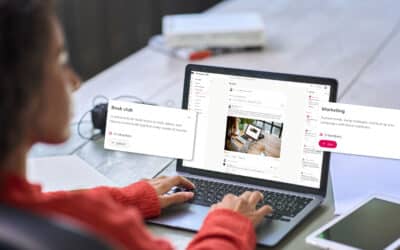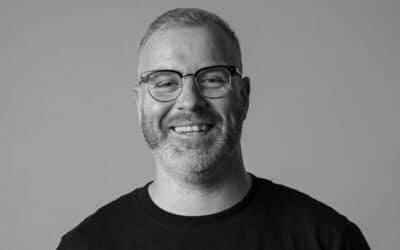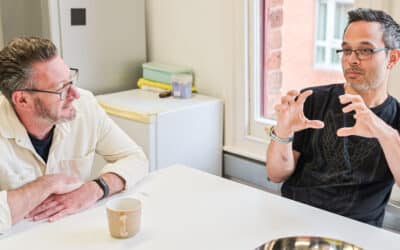Steve Leigh is managing director at Sensu Insight, a consultancy based in MediaCity.
Sensu Insight carries out research and measurement to help organisations, brands, marketers, and PR practitioners better understand their audiences and improve their performance – whether that’s to improve reputation or boost sales.
Although the company launched in 2022, the concept dates back to 2011 when Leigh left his role as a director at a large, independent PR agency to begin specialising in brand research and measurement of PR and marketing.
From working in PR for a computer games company to his role at Sensu Insight, Leigh shares his career journey, tips and advice…
How did you first get into your industry?
I actually trained in law but after graduating during a recession, I jumped at the first decent job that came up. I took a job handling PR for a computer games company around the time PlayStation was about to launch, doing European press around major game launches for a few years which was great fun – I got to travel around and play computer games as part of the job.
I then decided to stick with PR and moved into consultancy – first at a big independent agency in Manchester, before running an office for a networked PR agency. I also spent some time at Weber Shandwick, before becoming a director at another large independent PR agency and then helping to found and establish another.
What do you love about your job?
I first began developing the idea behind Sensu Insight 14 years ago, at a time when the recession was squeezing PR budgets, and the digital world was evolving at scale and pace (not too dissimilar to today). As well as using traditional research methods, I saw the potential for digital and social media to allow us to track and measure public conversations and reactions to PR campaigns. Arguably, for the first time, you could actually ‘see’ word of mouth spreading.
I felt this could help transform the industry from “hope it works” PR to really understanding its impact and proving its worth. This continues to be vital in an economy where it’s more important than ever to demonstrate return on investment.
So many PR and communications professionals put endless hours in to achieve great coverage – but struggle to articulate what this actually means to stakeholders outside their department. I love that, by using the best data and insight tools on the market and the software we’ve developed independently, Sensu Insight helps them prove – and improve – the impact of their work.
Who – or what – has inspired you in your career?
I’ve always loved getting to peek behind the curtain and see what makes things tick. In PR, my favourite part of working with a client was the first few months, being able to see how an organisation operates and the reality of its interaction with clients or customers.
Research and measurement take that to the next level, being able to measure, understand and share how perceptions are being formed and behaviours are influenced. This can then support the client in becoming better at what they do and tracking how that moves the dials for them.
We’ve supported organisations to deliver genuine change – in how they serve customers or help change cultures in ways that improve lives.
What are the biggest challenges about your job?
One of the biggest challenges – but equally the most interesting part – of my job is turning data into actionable insights for organisations to take on board. It’s about analysing and understanding what the data actually means and using it to inform an organisation’s strategic planning and educated decision-making.
It’s also important to spread the word about what can be achieved and help them realise the art of the possible. Improvements in technology (such as the recent opening up of AI) mean we can achieve so much more for a fraction of the cost compared to when we started in 2011.
Finally, it’s getting across the tangible impact this creates on delivering on an organisation’s objectives – whether that’s increasing profits or reputation and impact.
What skills have been the most crucial to you succeeding in your career so far?
The ability to break a challenge down into its component parts – creating logical and realistic solutions – has been crucial. A good example is our new software that allows us to track the impact PR is having on website traffic and even sales.
The ability to build a narrative from data has also been important. This means translating our findings into a ‘story’ that can help clients to understand their audiences and respond accordingly.
What was your first salary and what could someone getting into the industry expect to earn nowadays?
In 1994 (pre-Google and when even mobile phones were a rarity), my graduate job earned me around £12,000 p.a. The equivalent role now would perhaps be double that. But I was able to easily live independently off that – rent, food, etc. – so I think I had it much easier than people trying to get into careers now.
What education or training would be most useful for someone looking to follow your career path?
There’s an ongoing debate about the value of certain degrees when it comes to working in the PR and communications space. Having a qualification can certainly demonstrate to employers that a candidate can think analytically. Gaining a level of data literacy and undertaking regular training and independent research on measurement principles and methodologies can also be valuable for many roles today.
However, as someone who initially trained in a different discipline, I feel that a lot of skills can be developed on the job. Expertise comes from hands-on experience and learning as you apply new methods – for those starting out, it’s about being curious and showing commitment.
What advice would you have for someone looking to follow your path?
Don’t try to master everything yourself. Having top-level industry knowledge across a range of disciplines can be advantageous, but I’d recommend building a network of specialists you can call on. Trust external consultants for elements outside of your core competency and enhance your own skills to carve a niche and become the ‘expert’ yourself.
I’d also recommend focusing on client needs and opportunities more than specific tools. Every organisation is different and will require a tailored approach to deliver the right results.

